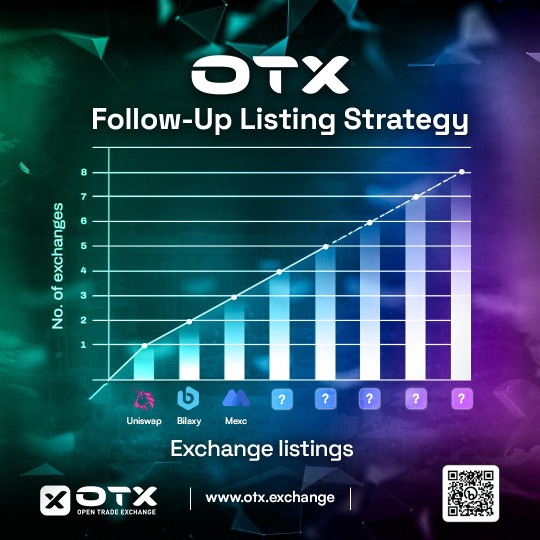#cryptoexchanges
Explore tagged Tumblr posts
Text
Crypto Exchanges

Crypto Exchanges Explained: How They Work, Risks, Regulations & the Best Platforms in 2025 Introduction: The Rise of Crypto Exchanges Cryptocurrencies have rapidly evolved from niche digital assets to mainstream financial instruments. Powering this evolution are crypto exchanges—platforms that enable users to buy, sell, and trade digital currencies like Bitcoin, Ethereum, and thousands of other altcoins. From centralized giants like Binance and Coinbase to decentralized protocols like Uniswap and PancakeSwap, these exchanges are the backbone of the global crypto economy. The importance of crypto exchanges extends far beyond trading. They serve as liquidity providers, price discovery engines, fiat on/off ramps, and compliance gatekeepers. In 2025, with growing institutional adoption and stricter global regulations, crypto exchanges are no longer just digital marketplaces—they are pivotal to the financial infrastructure of the future. This guide offers a detailed overview of how crypto exchanges work, their types, compliance challenges, risks, and what to consider when choosing a platform. What Is a Crypto Exchange? A crypto exchange is a digital platform that allows users to buy, sell, or trade cryptocurrencies. Exchanges facilitate transactions between buyers and sellers, offering features such as order books, market matching engines, and digital wallets. They act as intermediaries for fiat-to-crypto and crypto-to-crypto transactions. Some exchanges also offer custodial services, staking, futures trading, and access to NFTs or DeFi protocols. Key Roles of a Crypto Exchange: - Marketplace: Matches buy and sell orders - Custodian: Holds digital assets securely on behalf of users - Liquidity Provider: Ensures smooth market activity - Compliance Enabler: Implements AML/KYC, tax reporting, and regulatory checks The role and functionality of an exchange depend heavily on its structure and licensing status, which brings us to the next section. Types of Crypto Exchanges Crypto exchanges come in several forms, each with its own infrastructure, control mechanisms, and user benefits. Understanding the distinction is critical when choosing a platform for trading or investing. - Centralized Exchanges (CEX) These are the most popular type of exchanges. Operated by companies, CEXs act as intermediaries between buyers and sellers. Users deposit funds into the exchange’s wallet, which then facilitates transactions. Examples: Binance, Coinbase, Kraken, Bitstamp Advantages: - High liquidity and trading volume - User-friendly interfaces - Fiat on/off ramps - Advanced trading features (futures, margin, stop orders) Disadvantages: - Custodial risk (user funds held by the exchange) - Vulnerable to hacks and outages - Requires full KYC/AML compliance - Decentralized Exchanges (DEX) DEXs operate without a central authority, using smart contracts to facilitate trades directly between users (peer-to-peer). Users maintain control of their funds at all times. Examples: Uniswap, SushiSwap, PancakeSwap Advantages: - Greater privacy and anonymity - Non-custodial (you control your keys) - Lower regulatory pressure Disadvantages: - Lower liquidity and slower trade execution - No fiat support - Limited user support - Hybrid Exchanges Hybrid platforms aim to combine the user-friendliness of CEXs with the privacy and security of DEXs. While still a developing model, hybrids may represent the future of crypto trading. Examples: Qurrex, Nash How Do Crypto Exchanges Work? At their core, crypto exchanges function as digital marketplaces that match orders between buyers and sellers through various technical systems. Key Components: - Order Book: A real-time list of all open buy and sell orders - Matching Engine: Matches compatible buy and sell orders based on price and volume - Wallet Infrastructure: Manages deposits, withdrawals, and internal transfers - Custody System: Secure storage (cold and hot wallets) - Compliance Module: AML/KYC processing, sanctions screening, transaction monitoring Order Types: - Market Order: Executes immediately at current market price - Limit Order: Executes only at a specified price - Stop Order: Triggered when a certain price level is reached Crypto exchanges make money by charging trading fees, withdrawal fees, and sometimes listing fees from token projects. Key Features to Look For in a Crypto Exchange When selecting a crypto exchange, whether centralized or decentralized, consider the following key features: - Security Protocols: Look for two-factor authentication (2FA), cold wallet storage, and proof of reserves. - Regulatory Compliance: Ensure the exchange is registered with authorities (e.g., FIU, MAS, or FinCEN) and complies with KYC/AML. - Asset Support: More crypto and fiat options mean greater flexibility. - User Interface: Intuitive dashboards and mobile apps make a huge difference. - Liquidity: High trading volume ensures smoother transactions and better prices. - Fee Structure: Transparent fee charts with low spreads for frequent traders. - Customer Support: 24/7 availability and fast response times are critical in volatile markets. - Risks Involved with Crypto Exchanges While crypto exchanges provide essential services, they come with significant risks that users must consider before entrusting their funds. A. Security Breaches History is replete with high-profile hacks (e.g., Mt. Gox, Coincheck, FTX) that led to billions in lost assets. Even top-tier CEXs remain targets of cyberattacks. B. Regulatory Uncertainty Crypto regulations vary widely across jurisdictions. Exchanges may face shutdowns or restrictions without notice, especially in emerging markets or authoritarian regimes. C. Mismanagement and Insolvency Poorly run exchanges might suffer liquidity crises or unethical behavior. The FTX collapse is a sobering reminder that even trusted platforms can fail. D. Market Manipulation Some exchanges suffer from low transparency, enabling practices like wash trading or front-running, distorting market data. E. User Errors Unlike banks, crypto transactions are irreversible. Sending funds to the wrong address or falling for phishing scams can lead to permanent loss. Compliance & Licensing of Crypto Exchanges Regulatory compliance is now a non-negotiable requirement for global crypto exchanges. A. AML/KYC Obligations Most major exchanges enforce Know Your Customer (KYC) and Anti-Money Laundering (AML) procedures. This includes ID verification, proof of address, and monitoring of suspicious transactions. B. Jurisdictional Licensing In the EU, exchanges must register under the Fifth AML Directive (AMLD5) and soon comply with MiCA regulations. In the US, they must register with FinCEN as Money Service Businesses (MSBs). Singapore’s MAS and Dubai’s VARA also oversee rigorous frameworks. C. International Standards Top exchanges pursue certifications like ISO 27001, SOC 2, and compliance with the FATF Travel Rule. Exchanges operating in multiple countries often maintain licenses in Estonia, Lithuania, or Switzerland for European operations. Compliance not only reduces legal risk but also builds customer trust. Best Crypto Exchanges in 2025 (Comparison Table) Exchange Type Regulatory Status Security Features Supported Assets Avg. Fees Binance CEX Registered in multiple regions 2FA, cold storage, proof of reserves 600+ 0.1% trading Coinbase CEX SEC Registered, FinCEN MSB Insurance, cold wallets 200+ 1.49% instant Kraken CEX Registered in US & EU Bug bounty, advanced auth 100+ 0.16% maker KuCoin CEX Offshore, KYC optional Multi-layer security 600+ 0.1% trading Uniswap DEX Decentralized (no license) Smart contract audits ETH/ERC20 Varies Bitstamp CEX Licensed in Luxembourg, EU Strong AML/KYC, cold storage 50+ 0.5% trading How to Choose the Right Crypto Exchange Selecting a crypto exchange requires more than convenience or popularity. Here are key questions to guide your decision: - Is the exchange licensed in your country or region? - What is its history of security incidents or regulatory violations? - Does it support the cryptocurrencies and fiat pairs you need? - Are the fees transparent and reasonable for your trading frequency? - Does the user experience align with your skill level (novice vs. pro)? - Can you reach support quickly in case of a problem? - What are users saying on TrustPilot, Reddit, or Twitter? Ultimately, the "best" exchange is one that balances compliance, user experience, asset support, and security with your personal needs. Trends Shaping Crypto Exchanges in 2025 The crypto exchange landscape is evolving rapidly, driven by regulation, innovation, and market maturity. Key trends include: - MiCA Implementation: The EU's Markets in Crypto-Assets (MiCA) regulation is setting new standards for custody, consumer protection, and asset classification. - Decentralization: DEXs continue to grow, especially with layer-2 networks reducing gas fees. - Real-Time Settlement: Innovations in payment rails (e.g., Lightning Network, Solana Pay) are enabling near-instant crypto transfers. - Tokenization: Exchanges are expanding to offer tokenized stocks, real estate, and commodities. - Interoperability: Cross-chain platforms are becoming more seamless, reducing fragmentation across networks. - AI and Automation: From KYC processes to risk analytics, AI is making exchanges smarter and more efficient. Conclusion: The Future of Trading and Finance Crypto exchanges have matured into complex, highly regulated institutions at the heart of digital finance. Their evolution has paralleled the growing legitimacy of cryptocurrencies and will continue to shape the way the world interacts with money. Whether you're a retail investor, an institutional fund, or a fintech startup, understanding how exchanges work—and choosing the right one—is essential for success in the digital economy. As technology, compliance, and user expectations evolve, the most successful platforms will be those that offer a secure, transparent, and scalable environment that bridges traditional finance with the future of Web3. FAQs Q1: What is the difference between a crypto exchange and a wallet? A wallet stores your crypto; an exchange facilitates trading. Some exchanges offer built-in custodial wallets. Q2: Are crypto exchanges legal in the EU? Yes, but they must comply with AMLD5 and will soon be governed by MiCA. Q3: Can I use a crypto exchange without KYC? Some DEXs do not require KYC, but centralized exchanges typically do to comply with regulations. Q4: Which crypto exchange has the lowest fees? Binance and KuCoin are known for competitive fees, while Coinbase charges higher rates for convenience. Q5: What happens if a crypto exchange goes bankrupt? Funds may be lost if not insured or mismanaged. Choose exchanges with proof-of-reserves and strong financials. Q6: Is it safe to keep crypto on an exchange? It’s safer to withdraw to a private wallet, especially if not actively trading. Q7: Can exchanges freeze my funds? Yes, particularly on CEXs and if there's suspected fraud or regulatory inquiries. Q8: What are some decentralized alternatives to Binance? Uniswap, SushiSwap, PancakeSwap, and Curve are leading DEXs. Read the full article
#bestcryptoplatforms#centralizedexchanges#cryptocompliance#cryptoexchanges#CryptoTrading#cryptocurrencyrisks#decentralizedexchanges#digitalassets#MiCAregulation#Web3finance
0 notes
Text
The First Crypto Exchange: BitcoinMarket.com and Its Launch in 2010
In the evolving world of cryptocurrency, there are few moments as pivotal as the launch of the very first crypto exchange. BitcoinMarket.com, which opened its digital doors on March 17, 2010, marked a seismic shift in how people could engage with Bitcoin. Before its existence, acquiring Bitcoin was a niche and manual process. With BitcoinMarket.com, crypto enthusiasts were introduced to the…
0 notes
Text
Did you know? 📊 Cryptocurrencies are traded on digital exchanges just like stocks—only faster, 24/7, and without borders. Whether you're day trading or holding long-term, the crypto market never sleeps. 👉 Click this link to learn how : https://tinyurl.com/y9exyz7b
🔁 “Share to help other beginners”
#cryptotrading#cryptoexchanges#digitalassets#cryptomarket#investing#blockchain#24_7trading#web3finance#financialfreedom#futureoffinance#cryptobasics#learncrypto
0 notes
Text
#AWS#Crypto#Binance#KuCoin#CloudOutage#DecentralizedFinance#Web3#CryptoExchanges#Blockchain#TechNews
0 notes
Text
#Bybit#CryptoExchanges#BybitUS#CryptoTrading#BybitLegal#USCrypto#Cryptocurrency#BybitReview#CryptoRegulations#BybitUSA
0 notes
Text
Securing Cryptocurrency with Quantum-Resistant Cryptography

Learn how cryptocurrency platforms are adopting quantum-resistant cryptography to safeguard blockchain networks against the growing threat of quantum computing.
Introduction
The emergence of quantum computing is a double-edged sword for innovation, especially for the cryptocurrency industry. With blockchain networks relying on public-key cryptography, the potential of quantum computers to break these systems calls for the adoption of quantum-resistant cryptographic measures. Here's how cryptocurrency platforms are preparing for this shift.
Why Quantum-Resistant Cryptography Matters
Threat to Cryptocurrency Security:
Most blockchains, including Bitcoin and Ethereum, rely on RSA and ECC, vulnerable to quantum algorithms like Shor's.
This vulnerability threatens wallets, transactions, and the network as a whole.
Timeline for Quantum Threat:
Experts believe scalable quantum computers may be developed within 10-20 years and will pose a real threat to today's cryptographic standards.
Advancements in Quantum-Resistant Cryptography
Post-Quantum Cryptography (PQC):
The main algorithms are lattice-based systems, hash-based signatures, and multivariate polynomial solutions.
CRYSTALS-Kyber and CRYSTALS-Dilithium are NIST finalists for standardization and can be used for cryptocurrency.
Zero-Knowledge Proofs (ZKPs):
Emerging Quantum-resistant ZKPs shall introduce an added advantage to privacy in blockchain applications while keeping security uncompromised.
Hybrid Systems:
A hybrid approach transitions between conventional and quantum-resistant cryptography, allowing a gradual adaptation of blockchain networks.
Blockchain Platforms Leading the Pack
Quantum-resistant Blockchains:
QRL and QANplatform are innovators developing quantum-resistant properties within their protocols, starting with embedding XMSS properties within their protocols.
Hyperledger is also introducing enterprise blockchain solutions with a quantum-safe approach.
Mainstream Cryptocurrencies:
Bitcoin and Ethereum developers are seeking upgrades to incorporate quantum-resistant cryptographic measures.
Cardano has also indicated a proactive approach to the incorporation of quantum-safe algorithms.
Initiatives Fueling Innovation
Interdisciplinary Alliances:
Quantum computing scientists, cryptographers, and blockchain developers are working together to build powerful quantum-resistant standards.
NIST and ETSI are pioneering the efforts.
Collaboration with Quantum Computing Enterprises:
Enterprises such as IBM, Google, and Rigetti are assisting blockchain networks by conducting quantum simulations and testing post-quantum cryptographic protocols.
Adoption Barriers in Quantum-Resistant Solutions
Higher Computational Load: Quantum-resistant algorithms are very resource-intensive and could slow transaction speeds and increase energy consumption.
Compatibility Issues: Cryptocurrency platforms face the significant challenge of updating existing systems without disrupting operations.
Standardization Gaps: Many promising algorithms are still in testing, delaying widespread implementation and industry-wide adoption.
The Future of Cryptocurrency
Standardization Efforts: NIST's recommendations by 2025 will be critical to guide cryptocurrency platforms toward secure quantum-resistant solutions.
Proactive Transitioning: Leading exchanges and blockchain projects are recommended to adopt hybrid cryptographic systems ahead of the final appearance of threats from quantum technologies.
Funding and Research: Governments as well as various organizations are becoming more interested in quantum-resistant technology for the safeguarding of essential systems, even cryptocurrencies.
Conclusion
As quantum computing advances, cryptocurrency platforms must prioritize the adoption of quantum-resistant cryptography. These efforts are essential to secure blockchain networks, protect user investments, and maintain trust. While challenges remain, ongoing research and collaboration ensure cryptocurrency is prepared for the quantum era.
#Blockchain#CryptoNews#Bitcoin#Ethereum#QRL#IBM#Innovation#CryptoSecurity#BuyCrypto#CryptoExchanges#CryptoStrategy#CryptoMarket#CryptoInnovation#CryptoTax#DeFi#CryptoFuture#Tether#CryptoRegulation
0 notes
Text
Our experts have compiled a ranking of Russian crypto exchanges for 2024
Discover which platforms lead in reliability and convenience, and choose the exchange for your investments.
Read more at CryptoBigBox

1 note
·
View note
Text
Top 10 Crypto Youtube Channels For Beginners | Crypto Elite
youtube
👉 Subscribe for more Videos: / @cryptoelite_ ========================================== ✅ Share this video with your friends and family: ✅ Watch our other interesting videos: WATCH 🎥: • 5 Best Crypto Apps You Should Try Mus... WATCH 🎥: • Best Crypto Exchanges In USA You Shou... ======================================== You are watching 🎥: Top 10 Crypto Youtube Channels For Beginners | Crypto Elite Enjoyed this video? Hit the like button and subscribe to our channel for more videos like this! Thanks for watching! Disclaimer: All the videos, songs, images, and graphics used in the video belong to their respective owners, and I or this channel do not claim any right over them, and i am using this for educational purposes only. Top 10 Crypto Youtube Channels For Beginners | Crypto Elite
#channelsforbeginners#crypto#cryptoelite#binancecrypto#cryptocurrencies#cryptoexchanges#cryptoindustry#cryptonews#cryptonewstoday#Youtube
0 notes
Video
youtube
BINGX VS. BINGX: WHICH IS THE BETTER BET FOR CRYPTO TRADING?
#BingX #BingXcrypto #cryptotrading #cryptocurrency #tradingplatforms #cryptoexchanges #digitalcurrency #cryptoassets #investment #trading #cryptomarket #cryptoinvesting #cryptotraders #cryptoanalysis #cryptotrends #cryptovolatility #cryptoprices #cryptopredictions #cryptonews #cryptotradeanalysis #cryptomarketanalysis #cryptoinvestmentstrategy #cryptocurrencytradingplatforms #cryptoexchangeplatforms #cryptoassetsinvesting #cryptocurrencyinvestment
#youtube#bingx#bingxcopytrade#cryptotrading#cryptocurrency#tradingplatforms#trading platforms#cryptoexchanges#crypto exchanges
0 notes
Text

Top Crypto Currency Exchanges with The Crypto Basic Don't miss a beat in the fast-paced world of cryptocurrency exchanges. The Crypto Basic delivers timely updates and expert insights on the top platforms, helping you stay informed and maximize your investment opportunities.
0 notes
Text
Best Cryptocurrency Exchanges in India
Here, we provide crypto-exchange services for seamless trading, which is Simplyfy one of the best companies in India which makes transactions easy. These user-friendly exchanges offer safety and a variety of coins. Start your easy and secure crypto trading journey here! Download the app now. For more information
visit here:- https://simplyfy.co.in/
#crypto#blockchainrevolution#digitalcurrency#blockchain#cryptoinnovation#cryptoexchanges#simplyfy#simplyfyworld
1 note
·
View note
Text
Coinbase vs. Binance: Which Exchange Is Right for You?
As the world of cryptocurrency continues to grow, one of the most important decisions you will face as an investor or trader is selecting the right exchange. Two of the most prominent platforms in the market today are Coinbase and Binance. Each offers unique features, user experiences, and fee structures that cater to different types of users. Whether you’re a beginner looking for simplicity or…
0 notes
Text

Maximizing Outreach with Our OTX Follow-Up Listing Strategy: Expanding Across Numerous Exchanges! 🌍
Stay ahead with OTX !
#GlobalReach#OTXStrategy#CryptoExchanges#MarketExpansion#TradingSuccess#Cryptocurency#Crypto#blockchain#CryptoRevolution
0 notes
Text
The Future of Money: Cryptocurrencies in 10 Years
Imagine cryptocurrencies as a new kind of digital money. They’re like the coins and bills you use every day, but instead of being made of metal or paper, they exist purely in the digital world. What makes them special is the way they work. How Cryptocurrencies Work: Blockchain Technology: Think of cryptocurrencies as little pieces of information that are kept safe and organized in a special…

View On WordPress
#Bitcoin#Blockchain#Cryptocurrency#CryptocurrencyNews#CryptoExchanges#CryptoInvesting#CryptoMining#CryptoRegulation#CryptoTrading#Decentralization#DigitalAssets#Equity Market#Ethereum#Exchange-Traded Funds (ETFs)#Indian Stock Market#martContracts#Stock Exchanges#Stock Indices#Tokenization#Wallets
0 notes
Text
#AlgorithmicTrading#ArbitrageTrading#AutomatedTrading#CryptoAutomation#Cryptocurrency#CryptocurrencyInvestment#CryptocurrencyMarkets#CryptocurrencyTradingTips#CryptoExchanges#CryptoInvesting#CryptoPlatforms#CryptoPortfolio#CryptoSecurity#CryptoStrategy#CryptoTechnology#CryptoTools#CryptoTrading#CryptoTradingCommunity#MarketAnalysis#RiskManagement#TradingAlgorithms#TradingBots#TradingSoftware#TradingSolutions#TradingStrategies
1 note
·
View note